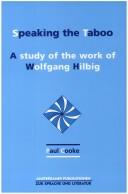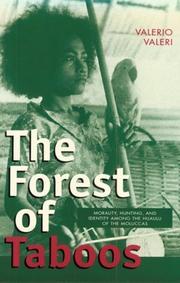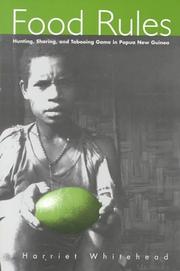| Listing 1 - 4 of 4 |
Sort by
|

ISBN: 9789004485617 9789042015425 Year: 2000 Publisher: Leiden; Boston : BRILL
Abstract | Keywords | Export | Availability | Bookmark
 Loading...
Loading...Choose an application
- Reference Manager
- EndNote
- RefWorks (Direct export to RefWorks)
Wolfgang Hilbig is a writer who is widely acknowledged as one of the most important to have emerged from the former GDR. In this study, the first in English, Paul Cooke explores the interplay of aesthetic and social 'taboos', as defined by the official discourse of the GDR, in a cross-section of Hilbig's critical writing, poetry and prose. The protagonists in Hilbig's texts suffer from a profound crisis of identity due to the disparity between the state's official presentation of life in the East and their own experience. Cooke argues that through their exploration of the 'taboo', i.e. that which is excluded from the state's official discourse, Hilbig's characters attempt to break through the banal rhetoric of the ruling elite in order to realise an authentic sense of self.

ISBN: 9780299162146 0299162141 0299162109 9780299162108 Year: 2000 Publisher: Madison: University of Wisconsin press,
Abstract | Keywords | Export | Availability | Bookmark
 Loading...
Loading...Choose an application
- Reference Manager
- EndNote
- RefWorks (Direct export to RefWorks)
Huaulu (Indonesian people) --- Huaulu (Indonesian people) --- Huaulu (Indonesian people) --- Taboo --- Maluku (Indonesia)
Book
ISBN: 2873401478 9782873401474 Year: 2000 Volume: *1 Publisher: Crisnée Yellow now
Abstract | Keywords | Export | Availability | Bookmark
 Loading...
Loading...Choose an application
- Reference Manager
- EndNote
- RefWorks (Direct export to RefWorks)
Art --- Kunst --- Liberté d'expression --- Vrijheid van meningsuiting --- Taboo in art. --- Scandals in art. --- Arts, Modern --- Tabou dans l'art --- Scandales dans l'art --- Arts

ISBN: 0472097059 Year: 2000 Publisher: Ann Arbor : University of Michigan Press,
Abstract | Keywords | Export | Availability | Bookmark
 Loading...
Loading...Choose an application
- Reference Manager
- EndNote
- RefWorks (Direct export to RefWorks)
Seltaman (Papua New Guinean people) --- Seltaman (Papua New Guinean people) --- Seltaman (Papua New Guinean people) --- Food habits --- Food --- Taboo --- Seltaman (Peuple de Papouasie-Nouvelle-Guinée) --- Seltaman (Peuple de Papouasie-Nouvelle-Guinée) --- Seltaman (Peuple de Papouasie-Nouvelle-Guinée) --- Habitudes alimentaires --- Aliments --- Tabou --- Food. --- Hunting. --- Rites and ceremonies. --- Symbolic aspects --- Alimentation --- Chasse --- Rites et cérémonies --- Aspect symbolique --- Western Province (Papua New Guinea) --- Province occidentale (Papouasie-Nouvelle-Guinée) --- Social life and customs. --- Moeurs et coutumes
| Listing 1 - 4 of 4 |
Sort by
|

 Search
Search Feedback
Feedback About UniCat
About UniCat  Help
Help News
News